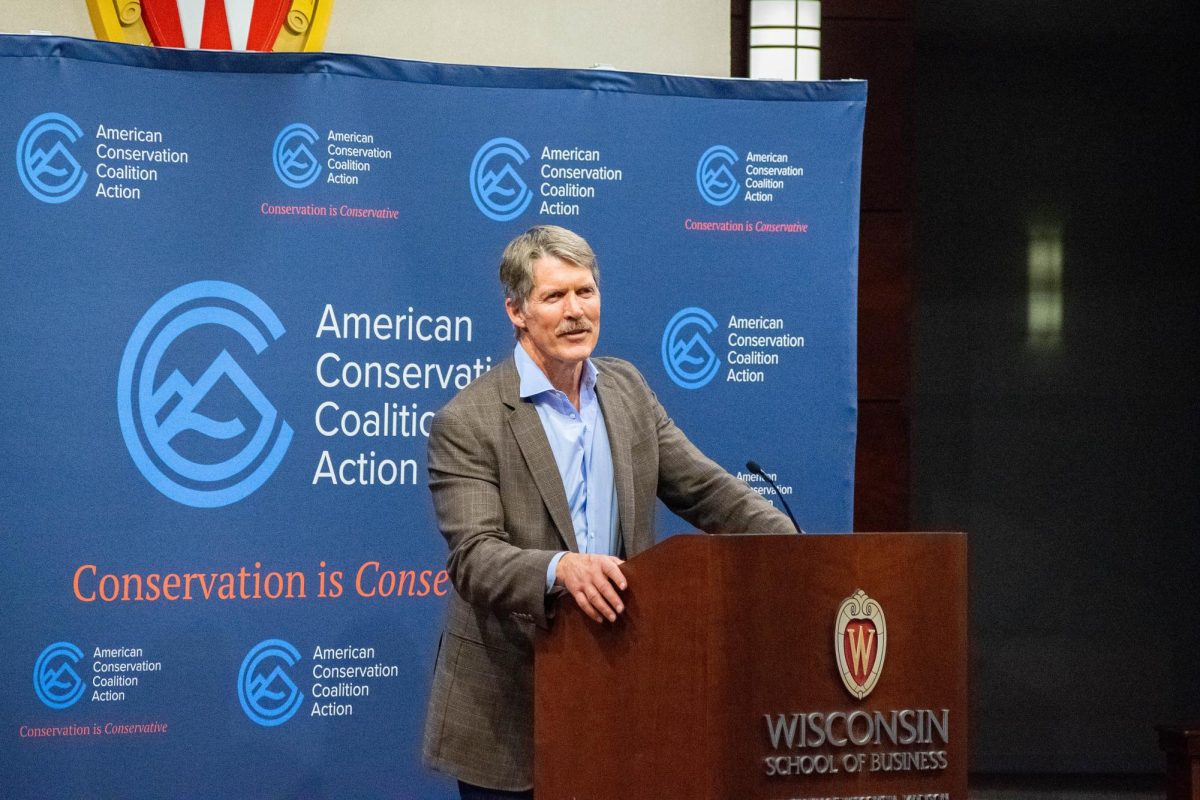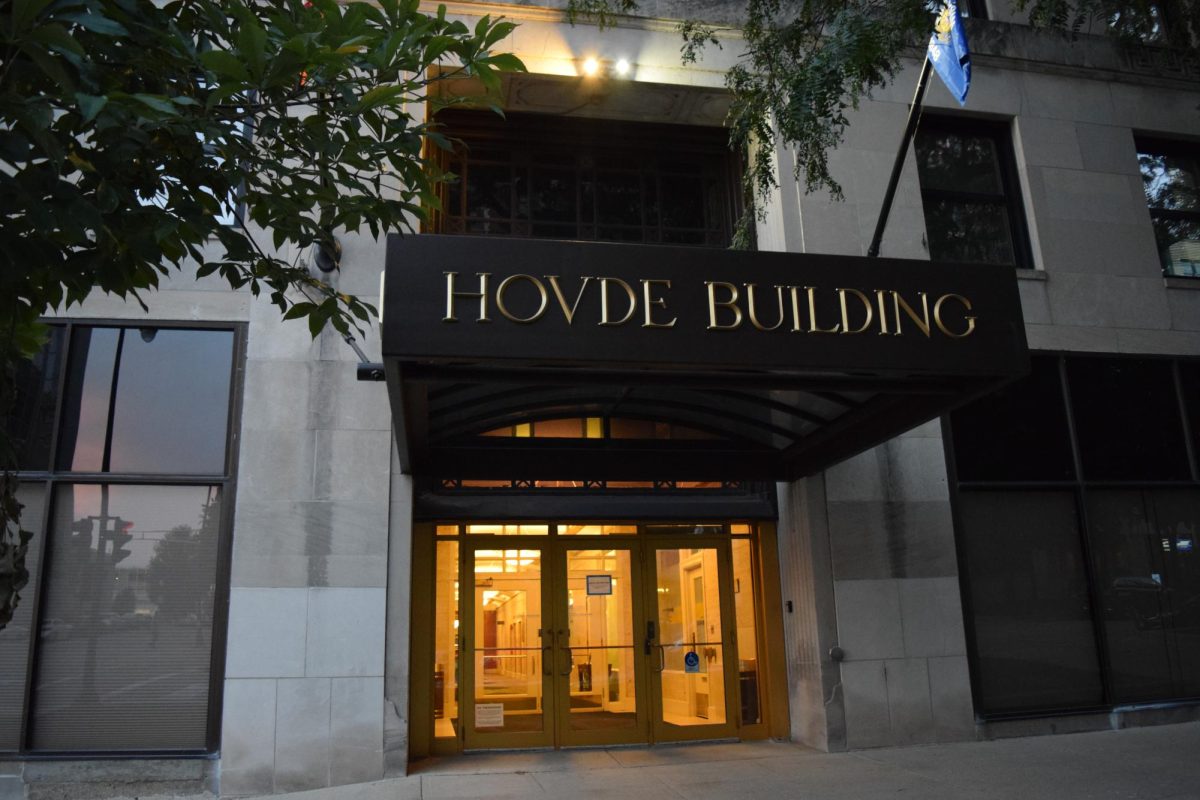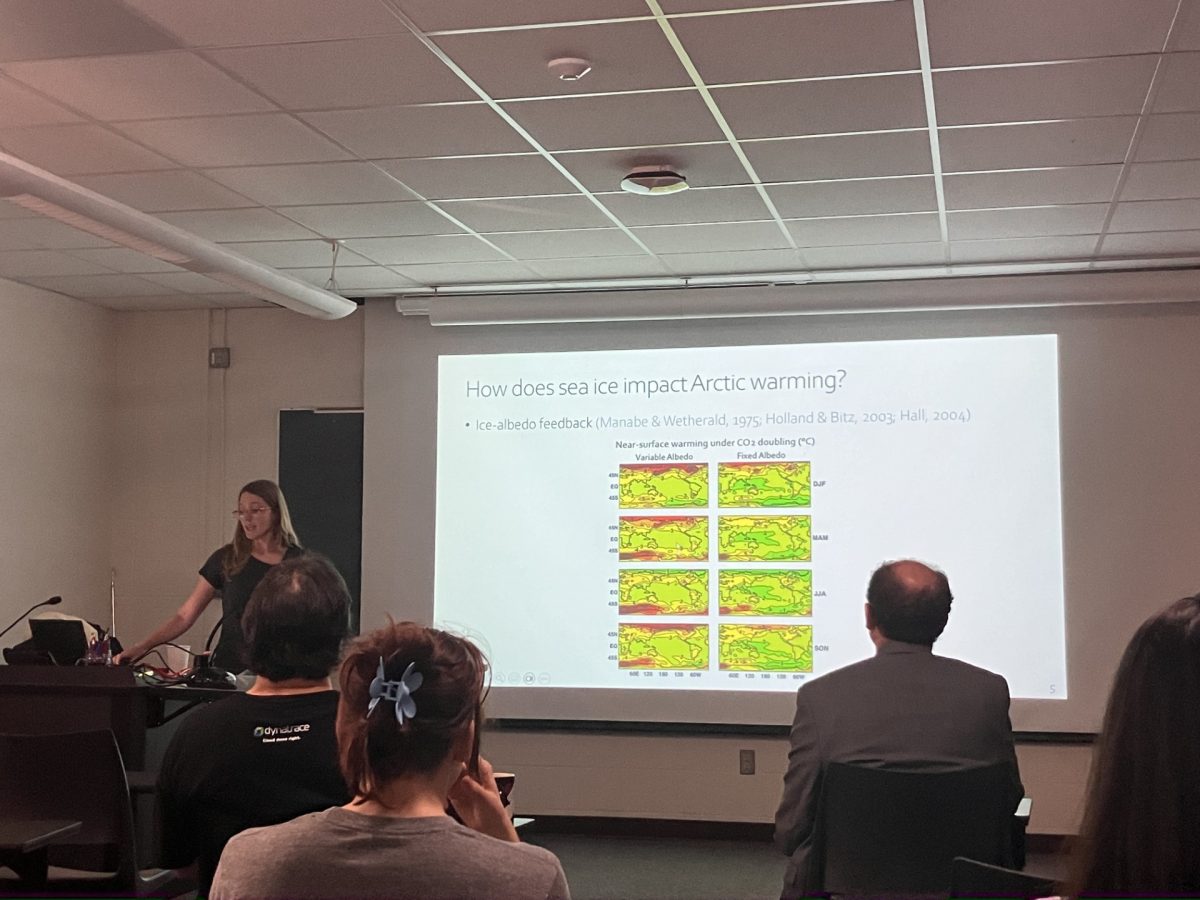Secretary of Commerce Don Evans said the economy is strong and getting stronger, an upsurge he attributed in large part to President George W. Bush’s tax cuts, at the Greater Madison Chamber of Commerce Thursday.
With area business leaders on hand, Evans praised the president for easing the financial strain on small-business owners.
“[President Bush] believes in signing the front of a check,” Evans said. “There are others in Washington that believe in signing the back of a check. [Bush] wants to give you your money back and keep it in your pocket.”
Evans churned out an array of indicators proving the economy’s strength. Home ownership is at the highest level in the country’s history, he said, while mortgage and interest rates are at historic lows.
In Wisconsin, 2.1 million people saw their tax burdens go down under Bush’s tax policy, Evans said. More than 400,000 small-business owners also pay less in taxes, while the elimination of the marriage-tax penalty saved money for more than 700,000 married couples in the state.
Before being appointed to Bush’s Cabinet in 2001, Evans served as a businessman in the oil and gas industry in Texas. He urged the need for a comprehensive national energy plan Thursday, calling for the practice of conservation methods and devoting money for the research and development of more efficient energy sources.
Madison Mayor Dave Cieslewicz, in attendance to promote a Madison small-business advisory forum, expressed confidence small businesses can thrive in Madison.
“We will always be a progressive city, and be sure we will sometimes challenge businesses of all sizes and policies they pursue,” Cieslewicz said. “But I think we can have an attitude in city government that works for small businesses and businesses of all sizes.”
In an interview after his speech, Evans disputed Democratic presidential candidate John Kerry’s claims the Bush administration supports companies shipping jobs overseas.
“We believe in insourcing jobs — we believe in bringing jobs into America,” Evans said, adding 22 million jobs in America are supported by foreign-owned companies.
A sure-fire ticket to fewer jobs, Evans said, would be to pursue policies erecting barriers to free trade.
“As a former businessperson myself, I get very concerned when I hear political officials talking about how we ought to not engage the rest of the world,” he said. “There isn’t anything that would destroy jobs faster than economic isolationism.”
For states similar to Wisconsin seeking to increase investment capital, Evans proposes collaborations between academics, government officials, and business leaders to chart a plan for increased economic growth. The University of Wisconsin plays a central role in the state’s ability to attract capital and jobs.
“You have to have the leadership of the university sitting down at the table with the legislators, and the federal Congress, and the senators, and the governor — and then you have to sit down with the private sector,” Evans said. “The model is for leadership across the economy to come together and say, this is the plan for growth and competitiveness and innovation in this region for the next 50 years.”







